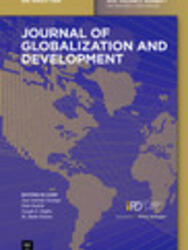Journal Special Issue
Experiments in Development Economics
In recent years, experimental methods have been both highly celebrated, and roundly criticized, as a means of addressing core questions in the social sciences. They have received particular attention in the analysis of development interventions. The studies in this special issue push beyond polarized debates over experimental methods towards a new middle ground, considering both how experimental work can better address identified weaknesses and how experimental and non-experimental techniques can be combined most fruitfully.
 Join the network
Join the network